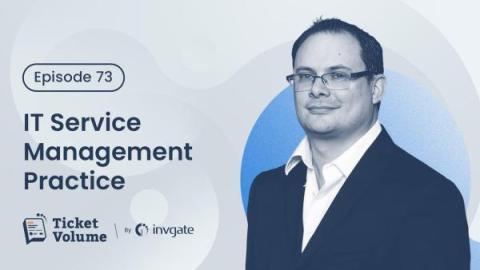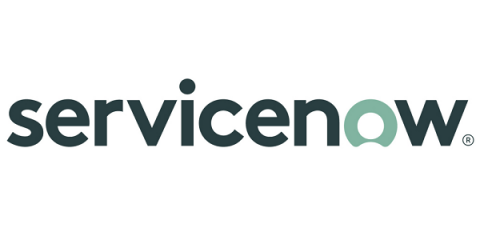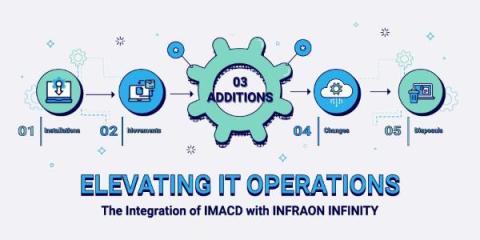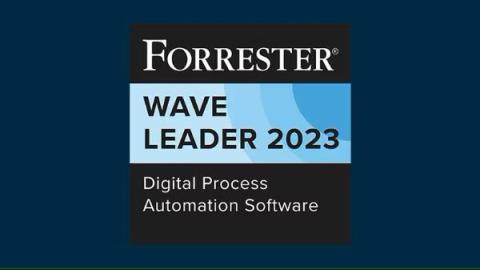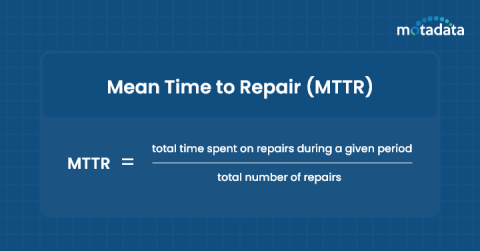Operations | Monitoring | ITSM | DevOps | Cloud
Latest News
How AI is changing the role of an implementer
Approximately 65,000 new implementers will be needed by 2027 as a result of AI, according to research by ServiceNow and Pearson. The time is now to enter this dynamic and high-growth field. Let’s explore what an implementer is, how the role is changing, and how you can prepare to fill an open position.
Elevating IT Operations: The Integration of IMACD with Infraon Infinity
GenAI in customer experience: Powering the future today
ChatGPT captured our collective imagination when it burst into the mainstream last year, setting off a hype cycle that hasn’t abated. The enterprise is where generative AI (GenAI) will become more than tech’s newest shiny object. GenAI is transforming the way we work, unlocking new efficiencies, driving productivity, and creating employee and customer experiences we never could have imagined. ServiceNow is at the forefront of this transformation.
IT Spending: Trends & Forecasts for 2023
Perhaps the most defining trends of the 2020s so far have been abrupt change and mixed signals. IT spending is no different. A mere 3 years ago, COVID-19 swept the globe and thought leaders were calling for the start of a “new normal” and predicted that life on Earth would never be the same – and a major component of that change would be a move to remote-first and digital-everything.
ServiceNow is a Leader in Digital Process Automation Software
I’m excited to announce that ServiceNow has been named a Leader in the Forrester Wave™: Digital Process Automation Software, Q4 2023. We credit this acknowledgement to our performance and strategy in governance, end-to-end orchestration, and AI. Additionally, we believe this recognition is made possible by the unwavering support of our customers, their innovative use of the Now Platform, and their valuable feedback shared with analysts.
Modernizing ITSM with ITIL 4: CMDB & service configuration management
The shift of the Information Technology Infrastructure Library (ITIL) 4 from process to value helps IT service management (ITSM) service providers demonstrate business value and adapt to change so they can meet business needs and customer expectations and thrive in an ever-changing technology landscape. However, in the face of an increasingly complex digital business environment, managing the diverse components of IT service operations can be challenging.
What is ServiceNow IT Operations Management - and how does it work with AIOps?
Is your company using ServiceNow IT Operations Management or considering using it? If so, you know the importance of enhancing the visibility of your IT infrastructure and services, protecting against service disruptions, and enhancing your company’s operational flexibility. In this blog, we’ll discuss how ServiceNow ITOM works, improves visibility across the entire IT infrastructure, and streamlines operations. We’ll also discuss how ServiceNow ITOM is better together with AIOps.
How to Reduce MTTR: A Complete Guide
Organizations striving to improve their operational efficiencies must know how to reduce MTTR as it plays a key role in today’s fiercely competitive business landscape. Customer satisfaction is a top priority for most businesses and late response to their queries or issues can have a negative impact. To track the response and resolution time, businesses measure their MTTR score. MTTR is a key metric that gives insight as to how much time an organization takes to resolve an incident or issue.
A Single Pane of Glass: How It Transforms IT Asset Monitoring
How large is your company’s IT infrastructure? How many devices and assets are attached to it? As large as it was yesterday, it’s probably larger today — and will be still larger tomorrow. This is compelling organizations to embrace device and asset monitoring under a “single pane of glass,” meaning via a unified, “single console” view of their entire network to enable unified endpoint management (UEM).


